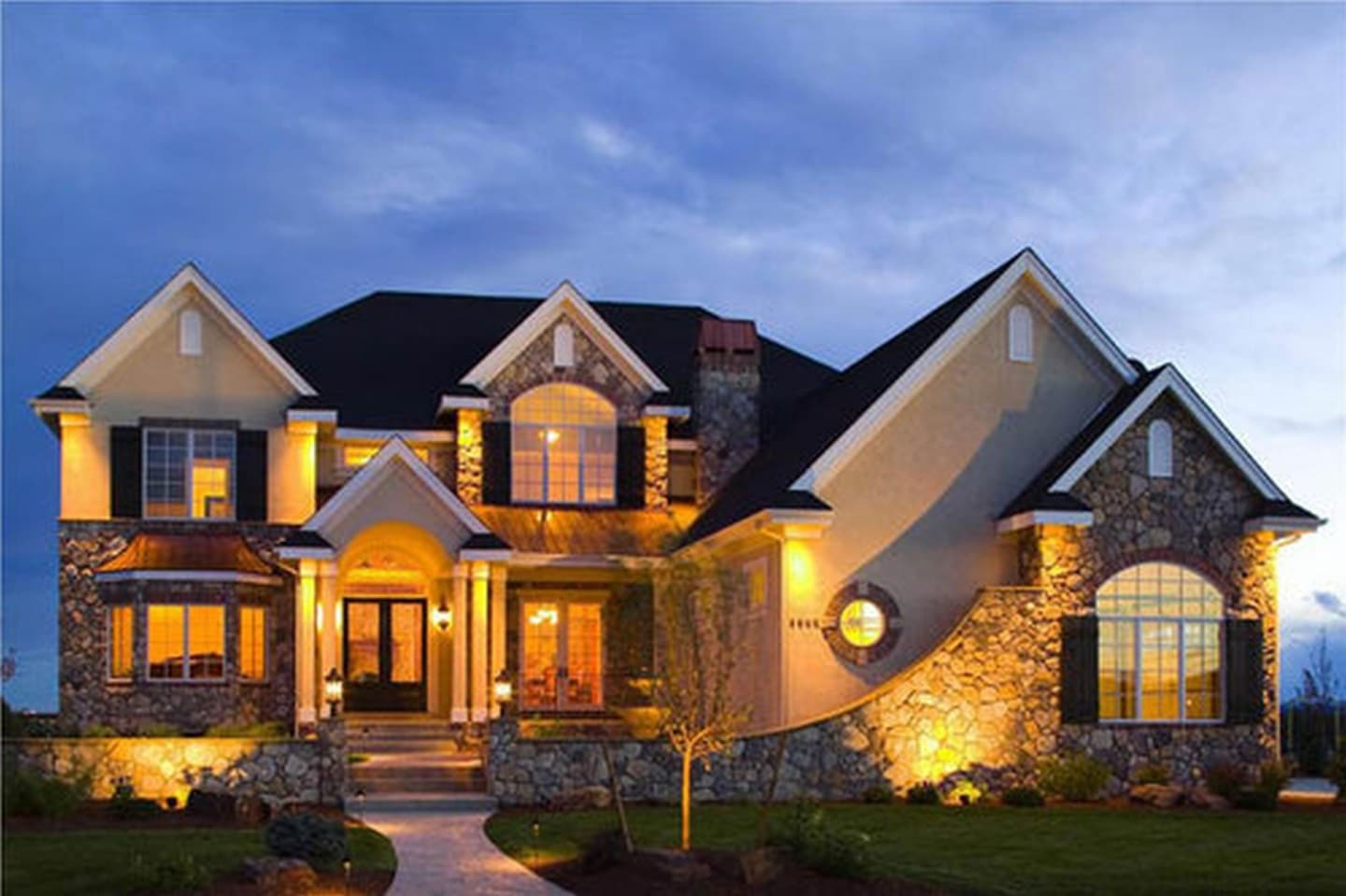

James Sweeney, the owner of Hometronics Lifestyles, began his career in the home security business in the early 1970s when smart home technology was something you saw in futuristic Sci-Fi movies.
However, more than four decades later with hundreds of accolades from satisfied clients and countless awards from industry publications and associations including a five-star rating on Google, Sweeney is now considered the go-to smart home guru in the Northeastern United States.
In fact, during his 30 years in owning a smart home business, Sweeney has had to step in when other smart home companies’ jobs have gone awry.
“We’ve got the reputation of going in and cleaning up people’s messes,” said Sweeney. “In 2017, 70% of all work was redoing other company’s screw-ups.”
When a client called and said their home theater was more like a nightmare than the movie room that they had envisioned, Sweeney came to their rescue.
“The seating was all wrong. You couldn’t see the screen from the second row,” said Sweeney. “We had to do a complete gut renovation and go into the basement space to make it right. Even the acoustical material used was not correct. But in the end, Hometronics made their dreams come true.”
But that’s just who Sweeney is. He goes out his way to make sure every detail in the smart home plan is precise so that every customer is not only satisfied but delighted with their results as well as have the latest in smart home technology.
He can guarantee this to his clients because he and his staff remain on top of smart home industry technology by attending seminars, conferences, trade shows, and product specific training. He is also an active member of the Custom Electronic Design & Installation Association (CEDIA).
“It’s an ever-evolving business, and you have to keep up with everything for example 5G, the Internet of Things is driving the industry now,” said Sweeney.
Throughout his career, Sweeney has been on the boards of several, local, country, and state and industry boards, but said his family is a larger part of his life now.
“I still attend many of the industry events but have given up my board seats,” he explains. “Now, when former board members see me and say, ‘I haven’t seen you in a while,’ I say, ‘I am on a new board now it’s called grandson.’ I take him to archery, singing lessons, guitar lessons.”
Although, Sweeney said he’s nowhere near ready to retire.
“I am a workaholic. When I do something, it becomes an addiction,” he explained. “Plus, when my wife had me off and at home for two weeks, she realized she would rather have me go to work than upset her routine.”
Sweeney talks shop about his early beginnings, the opening of his own business, how it evolved into a thriving, smart home business and his thoughts on where the rapidly evolving smart home technology industry is going.
Q & A: How did the Smart Home Business begin and where is it going?
When did your business begin?
I started in 1971 working for a security company in New York City called the Homes Co. I moved my growing family to Connecticut in 1974. I then went to work for an alarm company in Meriden, CT. In 1978, I opened my own business, a security burglar alarm company.
So how did your business evolve from a security alarm system company to a smart home company?
By 1988, we had grown to 3,000 alarm clients, and we realized that our best clients were the wives who didn’t want to see these big ugly column speakers in their house. They asked if we could hide speakers. So, we started to install in-wall speakers and hidden speakers for our alarm clients. In 1989, I sold the alarm company just to concentrate on high-end audio/visual.
How did you get started in audio/visual?
We put together a business plan to market to our existing alarm clients our audio/visual products. Our target price range we estimated was going to be between $7,000 to $15,000. Our first job was $198,000. We realized we missed our mark in a good way and average job became $70,000 to $240,000.
Our business began and started to grow in the late 1980s and early 1990s, but the late 1990s we sold our first Plasma TV installed for nearly $50K, and now you can buy a flat panel TV for as low as $395.
Where do you see the market in 10 years?
With smart home technology, you can’t even talk about decades as far as predicting. It’s months. When we started in this business, we talked about where the business was going in decades. Now, you talk about where it’s going to be in 10 months.
The biggest influencers in the industry are IP and the Internet of Things. Internet of things has a very wide scope, 5G is one of the components that will be the biggest influences — meaning how much information can be held and or processed, or the number of things that something can talk to at one given time.
Can you explain what 5G is and how it works?
How much bandwidth or communication that is what G or “generation” stands for. Basically, 4G can talk to 1,000 at once 5G is going to be able to talk to 100 times more things than 4G.
Will 5G be more expensive?
There is always going to be a premium price for the latest and greatest. However, mass products, products that have been on the market for a while tend to get cheaper, cheaper and cheaper. However, new technology is coming out cheaper because the processing chips are less expensive, they do more things, and so that’s where AI plays a role.
How will 5G effect the smart home industry?
When you look at the future of 5G everything has an IP address from your phone to your car, anything that has a chip in it. Everything is being built with an IP address. What’s going to happen within the next 12 months is going to be launching of 5G technology, and that means everything is going to be able to talk to every single thing with an IP address. Big HVAC systems sitting on top of buildings have computers in them. Those computers will be activated with an IP chip. The maintenance team is going to be alerted when that unit needs to be serviced or is doing something that requires their attention, or on the verge of breaking down or malfunctioning.
How will homeowners benefit from 5G and beyond?
Your refrigerator at your home when that motor is drawing more electricity than it did, the month before, the day before, the hour before it will alert you that something is wrong. And it can be nothing more than needing to clean a filter because there’s not enough air flow. So, everything in the world is going to talk be able to talk to everything with an IP address, and it will be instantaneous. There will be no latency. The millisecond something happens, someone is going to know about it.
What about the downside of having all this technology?
Every technology has a negative and positive effect on society. We as a smart home technology provider, we really don’t look at the negative. Although, there are no real innovators today. There is no Bill Gates, the Apple guy. The younger generation, anybody from 30 down are technology dependent. They just use it. Knowing how something works and is built is totally different than the end user that uses it.
How will all this technology affect the end users?
Where we are going is going to be done with smartphones. Smartphones are going to be doing more and more, and there will be no lag time. 5G will be online in one to two years. Once you have 5G, 4G will be obsolete. 4G phones will be good for making phone calls but won’t be able to do all you want to do.
5G, AI and the Internet of Things are going to explode because of 5g. You are going to be able to do more things for less money.
You are just going to be able to say Alexa cook my dinner. Sometime in the future, you will see your stove also be a refrigerator. So, in the morning, you just put your meatloaf in the device and tell it when to start cooking, and it will be refrigerated until it is told to start heating up like a stove.
And when you walk down the aisle of a grocery store, and you have a list on your smartphone, it will tell you where that item is located in that store.
What has been the most challenging part of your job as a business owner?
Making money, because as prices drop, it becomes more difficult to make money. Labor rates are going to go through the roof. The business has the same amount of overhead, the products they sell and the labor to install it.
Finding qualified workers that know the business is also a challenge. The labor force in Connecticut is horrible. We have an aging workforce in Connecticut for all trades, electricians, plumbers, sheetrock installers, carpenters. Those guys the average age is 40. When the average age should be 24.
Since the price of smart home items is going down, the profit margin on the items are going down, and labor cost is going up. Typically, when we started in this business, we were making 75% gross margin on the product, and now on most products, we are lucky to make 20% gross profit on them. So, you try to make it up on labor, but labor is expected to grow to $250.00 an hour over the next five years. You are either making money on products or labor.
Since you’ve cleaned up so many other company’s messes, what advice do you have in choosing the right smart home company?
You have to be careful. The problem is you never know. Most of these people are getting referrals. And some companies brag about their high-end work and celebrity work, but you can do all the due diligence online. Then it’s a matter of faith. But you really need to check references and the better business bureau, check their license and check consumer protection. Then at least you have a good head start in knowing whether you have a reputable company.
What have you enjoyed most or been the most memorable about being in business?
We’ve done well-known people, people on the Forbes top CEO list, people who make anywhere between $25 to $100 million a year. And I love working with all my clients but the most rewarding thing over the last 40 years and part of owning this business is watching employees grow and become successful business people or just successful individuals.
Employees that had left and come back to seek out other opportunities and are now more skilled when they left. I welcome them back at a higher salary. I enjoy employee development. We put a plan together for our employees and if they follow it, and they put in the effort, they will be successful not only here but in future jobs.
Out of all the things in my business, the money and working with the rich and famous, it’s the people I get to mentor that is the most fulfilling. If they apply themselves, and that went onto to start their own businesses to become successful salespeople, become successful AV technicians, I know, I was a part of their successes.
